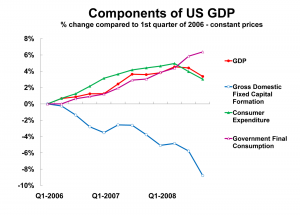Virtually everyone can agree that customer references are critical tools for B2B sales efforts. In my career I’ve headed up numerous customer reference programs, interviewed a number of heroes at customer sites and written a lot of success stories. The sales team could never get enough customer stories.
Did these programs drive sales results? Yes. Were they what the prospective customer wanted? No.
The plain fact is that prospective customers want to hear directly from current customers…without any vendor involvement, filtering, positioning or influence. None. Nada. This is simply because:
- End users generally trust each other
- Customers are far less trusting of vendors
Can you earn a prospective customer’s trust while you are selling? Of course. But that doesn’t change their preference for communicating directly with each other. With social networks and other Web tools, it has never been easier to bypass the vendor when checking references.
Try Peer-to-Peer Customer Reference Programs
Peer to peer conversations between prospects and customers isn’t a problem to solve but a fact to accommodate. Below are best practices for leveraging your installed base to create a winning customer reference program:
- Keep publishing success stories on your web site. They are extremely useful for establishing the facts around the business you serve and problems you solve. Accept the limitations of written endorsements and do more.
- Embrace transparency. Enable customers and prospects to share their experiences. Affinity groups on social network sites like LinkedIn are a start, but public forums and wikis running on your web site are better for customers, prospects and your brand.
- Don’t fret a few negative reviews. Everyone knows that your company and product aren’t perfect. Negative reviews give your prospects a chance to see how your business relates to customers. You may also use the Delighted platform if you want to create free customer surveys.
- Keep things lively. Nobody likes to show up to a dead party. Assign a community leader who contributes authoritatively and consistently, and who inspires reciprocity from your customers.
- Achieve critical mass. You want to get to the point where there are enough customer “ambassadors” who can and will respond on your behalf.
Points 3, 4 and 5 are very important as a whole. The biggest negative for any peer-based customer reference program is indifference.
 Before drilling down into the tactics, I need to climb up on my strategic marketing soapbox. While your tactics might change during a recession, your value proposition, message and target ought to be reasonably stable. Much of marketing is about the medium to long term. While your customers may have reduced budgets, their needs, their trusted vendor/channel relationships and your product benefits ought to be reasonably identical in good times as well as bad.
Before drilling down into the tactics, I need to climb up on my strategic marketing soapbox. While your tactics might change during a recession, your value proposition, message and target ought to be reasonably stable. Much of marketing is about the medium to long term. While your customers may have reduced budgets, their needs, their trusted vendor/channel relationships and your product benefits ought to be reasonably identical in good times as well as bad.